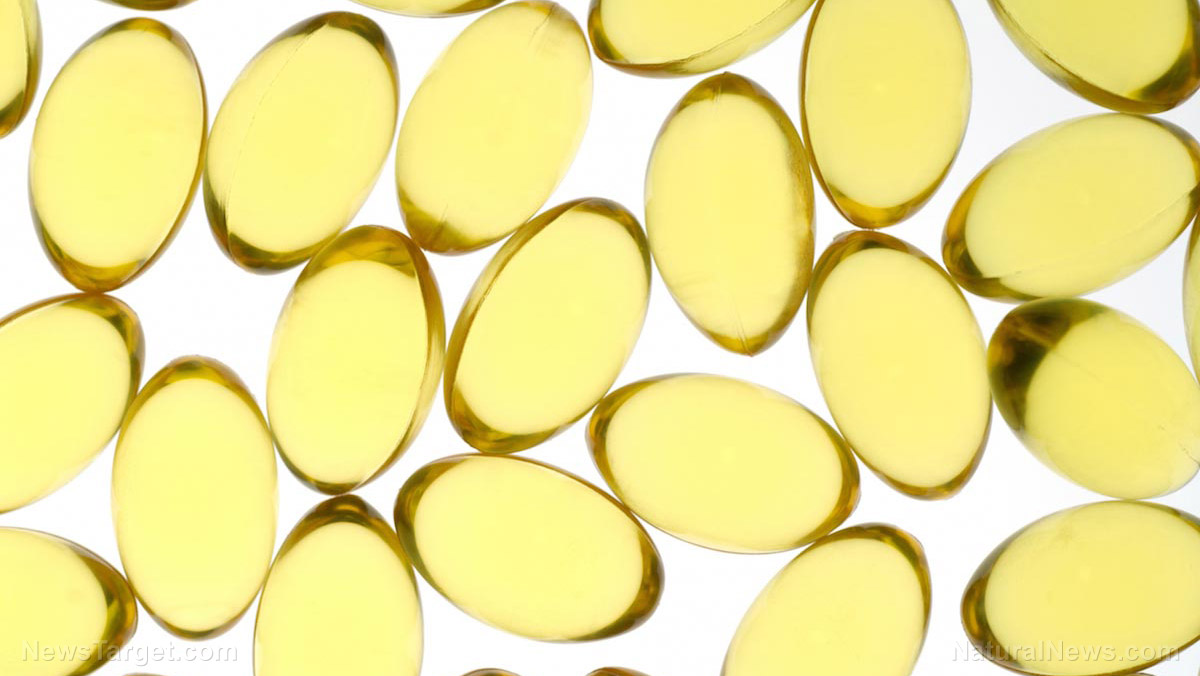Adding omega-6s to your diet could help prevent heart disease, advise researchers
09/23/2019 / By Melissa Smith

Omega-6 fatty acids are often seen as harmful. However, studies suggest that when consumed in moderation and in place of saturated fats found in dairy products and meats, they can be beneficial to your health.
In fact, a new study published in the journal Circulation has suggested that omega-6s could be just as essential as omega-3s in reducing the risk of cardiovascular disease. For this study, researchers gathered data from 30 prospective studies in 13 countries. The data comprised of both baseline blood linoleic acid (omega-6) levels and subsequent risk for developing or dying from cardiovascular diseases of about 69,000 participants.
The researchers found that people who belong to the top 10 percent of blood linoleic acid levels had a seven percent lower risk of developing cardiovascular disease and a 22 percent lower risk of dying from cardiovascular disease than those who were in the bottom 10 percent. In addition, those who had the highest blood linoleic acid levels were 12 percent less likely to experience ischemic stroke than those with the lowest levels.
Another study, which was published in the journal The Lancet, looked at data from 20 studies in 10 countries involving 40,000 participants. At the beginning of the studies, the participants underwent laboratory tests for levels of two omega-6 markers, linoleic acid and arachidonic acid. The participants were of different ages and did not have Type 2 diabetes at the time, but the researchers saw 4,347 new cases of diabetes that occurred over time. The researchers found that those with the highest levels of linoleic acid had a 35 percent lower risk of developing diabetes compared with those who had the lowest linoleic acid levels.
The misconception about omega-6
Omega-6s are in a bad light because the body converts linolenic acid (omega-3) into arachidonic acid, which is a building block for molecules that induce inflammation, blood clotting, and the constriction of blood vessels. However, the body also converts arachidonic acid into molecules that fight inflammation and prevent blood clots.
Researchers at the American Heart Association (AHA) have reported that the body converts only a small amount of linolenic acid into arachidonic acid, even when linolenic acid is abundant in the diet. The AHA researchers have discovered that consuming more omega-6 fatty acids did not promote inflammation. Instead, it either reduced markers of inflammation or did not cause any changes.
Many other studies have shown that the rates of heart disease declined as intake of omega-6 fatty acids increased. A meta-analysis of six randomized trials revealed that replacing saturated fat with omega-6 decreased the risk of heart attack and other coronary events by 24 percent. Another report in the American Journal of Clinical Nutrition, which analyzed the results of 11 large cohorts, found that replacing saturated fats with polyunsaturated fats, including omega-6 and omega-3, decreased heart disease rates more than substituting them with monounsaturated fats or carbohydrates.
Choosing the right sources of omega-6
The key to good health is to have the right balance of omega-3 and omega-6 intake. A low intake of omega-3s can harm the cardiovascular system. Unfortunately, the average American consumes more omega-6s than omega-3s because of the rise of processed vegetable and seed oils. However, this does not mean that you should cut your omega-6 intake. Instead, eat more omega-3s and choose the right source of omega-6s. The best plant-based source of omega-3 fatty acids is flaxseeds. Flaxseeds also contain an acceptable omega-6 to omega-3 ratio. You can get omega-6 fatty acids from sunflower seeds, walnuts, and pumpkin seeds.
Sources include:
Submit a correction >>
Tagged Under:
blood linoleic levels, cardiovascular health, disease treatments, fatty acids, food science, heart health, Linoleic acid, longevity, nutraceuticals, nutrients, nutrition, omega-6 fatty acids, polyunsaturated fats, premature death, prevention, supplements
This article may contain statements that reflect the opinion of the author
RECENT NEWS & ARTICLES
ReverseHeartDisease.News is a fact-based public education website published by Reverse Heart Disease News Features, LLC.
All content copyright © 2018 by Reverse Heart Disease News Features, LLC.
Contact Us with Tips or Corrections
All trademarks, registered trademarks and servicemarks mentioned on this site are the property of their respective owners.





















